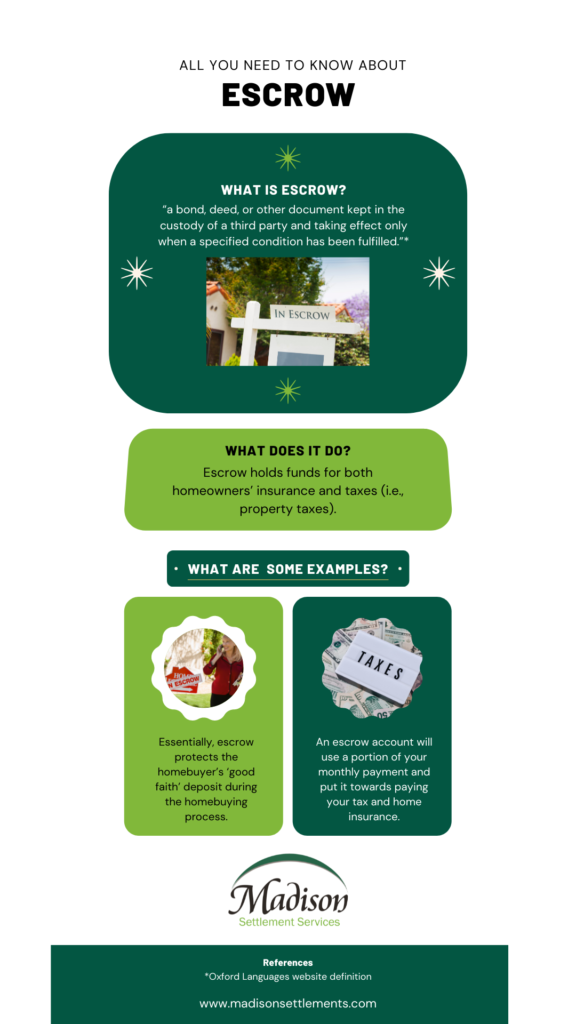
What Is Escrow?
You’ll hear the term “Escrow” mentioned frequently during the homebuying and selling process. This article will break down and answer the question of what exactly it is – whether you are a real estate agent wanting to hand out something to clients, or a first-time homebuyer!
Let’s define the term first. The Oxford Languages definition of escrow is “a bond, deed, or other document kept in the custody of a third party and taking effect only when a specified condition has been fulfilled.”
 What Is Escrow For?
What Is Escrow For?
Escrow holds funds for both homeowners’ insurance and taxes (i.e., property taxes). It also safeguards the seller and the homebuyer during the entire process of buying a home. Escrow is offered and used in two different ways. One way escrow applies is during the homebuying process. The second way is that escrow is used throughout the life of your mortgage loan.
Homebuying
Essentially, escrow protects the homebuyer’s ‘good faith’ deposit. This ensures that the good faith (or also known as ‘earnest money’) money will be given to the correct party pending the conditions of the home purchase. The exact amount of earnest money a homebuyer puts down varies but providing the deposit, shows that the homebuyer is serious about purchasing the home they are interested in. Thus, an escrow account will hold the deposit.
In the case of the contract not working out on the buyer’s side, the seller will get that good faith money. But if the contract and purchase go through successfully, that good faith deposit will then be used towards the buyer’s down payment of the home.
Now, if you are building a home, you may think that an escrow account does not apply to you in this sense. That is not always the case. You may have money in an account and once certain conditions are met, that money in the account will be distributed to the correct party involved.
Taxes and Insurance
If you are making payments towards your mortgage, an escrow account will use a portion of your monthly payment and put it towards paying your tax and home insurance. The nice part about this is that you typically do not have to send a check to your property tax or home insurance – an account with your lender will take care of that for you!
That is because once you have closed on purchasing the property, your lender or mortgage servicer will take a portion of your monthly mortgage bill and hold those funds in your escrow account. The funds will be held until insurance and tax payments are due. So, that portion of the money they took after closing will then go straight towards paying what you owe in taxes and insurance!
Premiums for tax and insurance though can change. Your account will be examined yearly by the lender or servicer to ensure that they are not collecting too much or too little funds for insurance and taxes.
Final Thoughts
While there is more to be said about escrow, we hope this article helped. Keep checking back for more information on the pros and cons of escrow accounts as well as if you need one or not!

